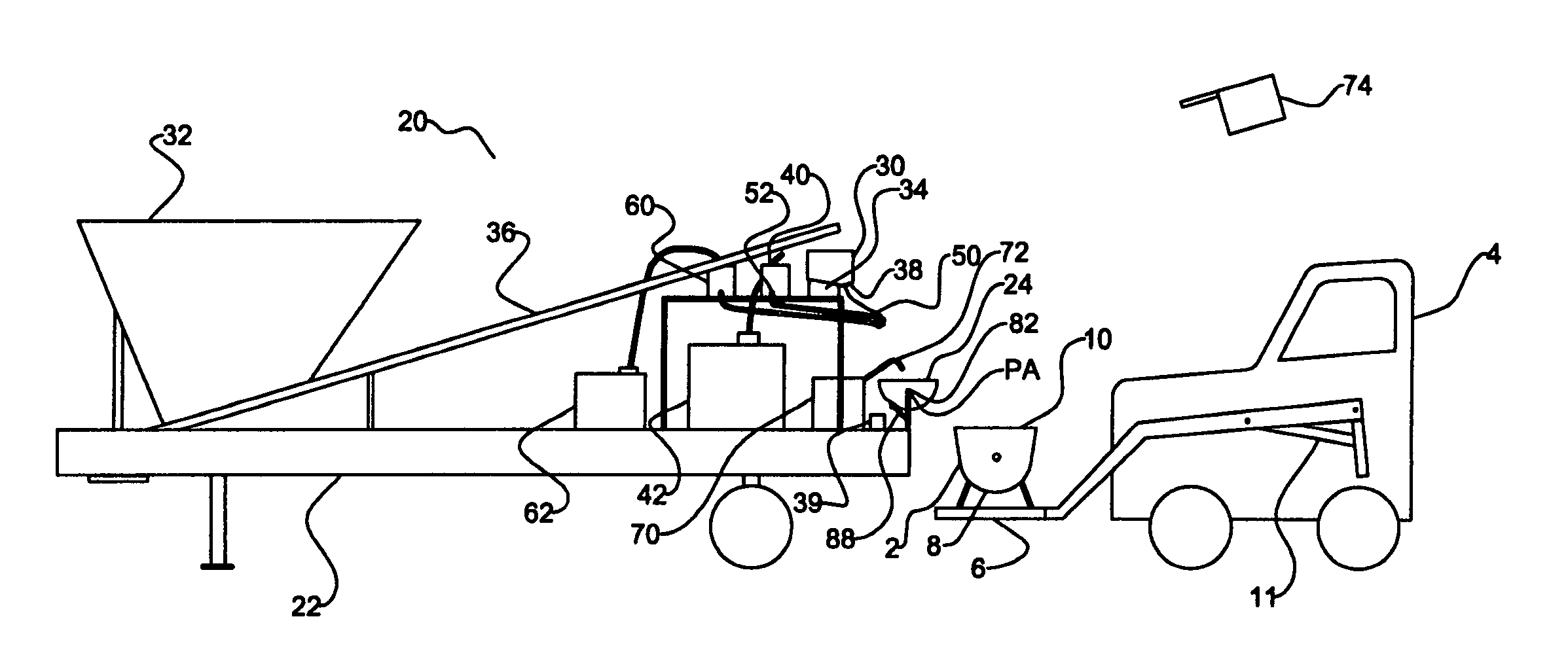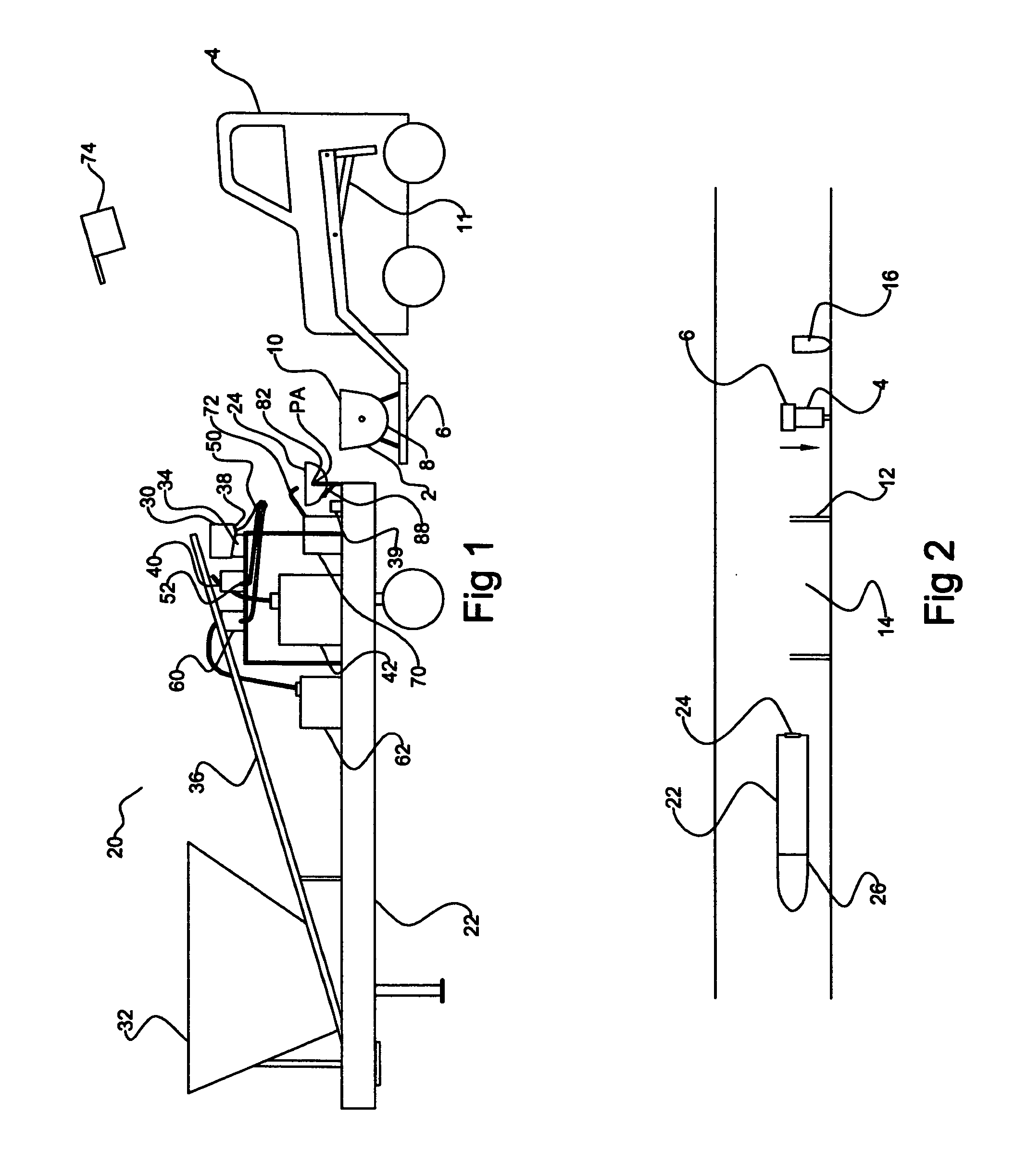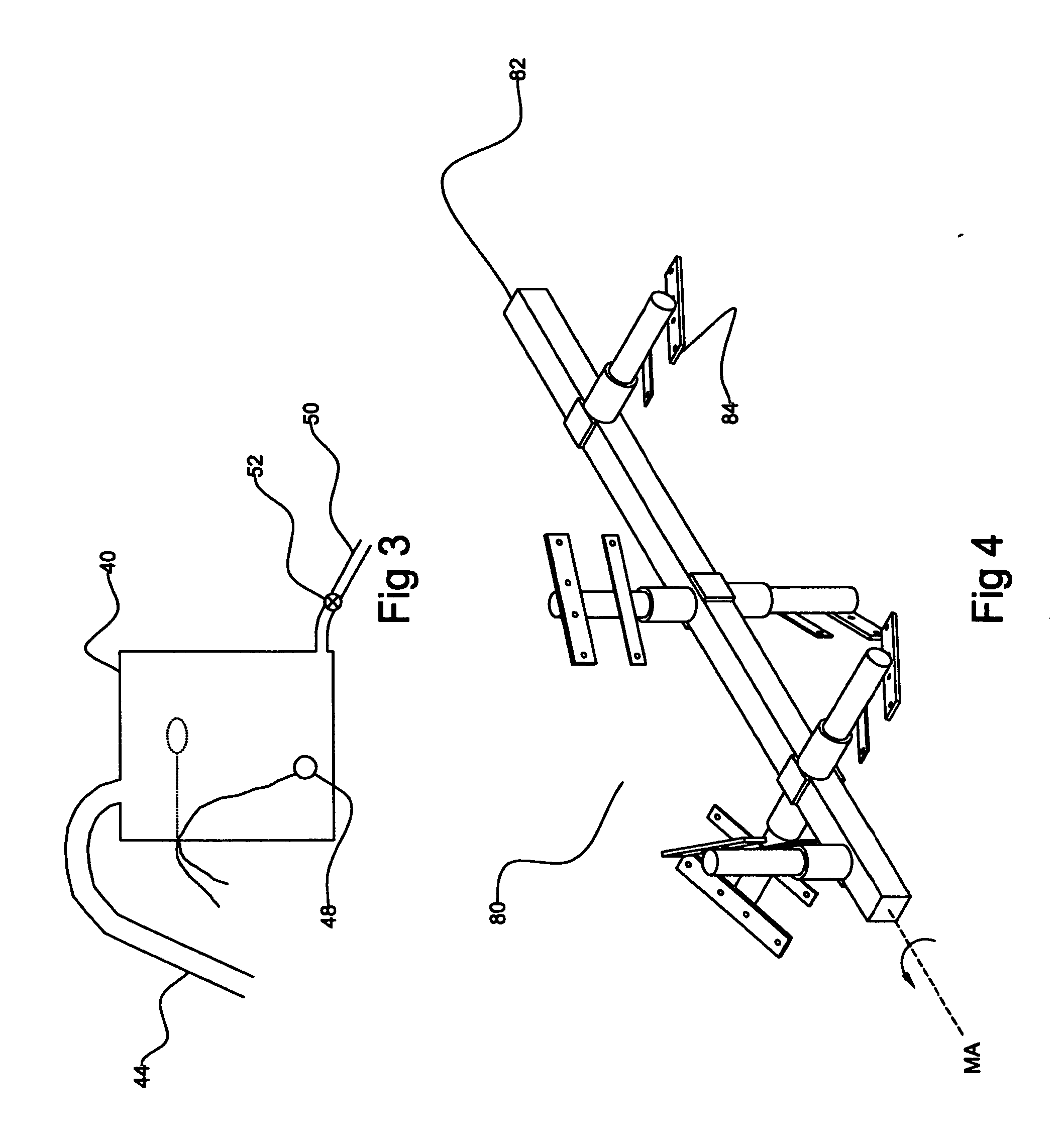Repairing road surfaces
a road surface and slurry technology, applied in the direction of roads, in situ paving, roads, etc., can solve the problems of slow traffic sealing slurry not allowing resumption of traffic, microsurfacing slurry not allowing the spread of vehicles,
- Summary
- Abstract
- Description
- Claims
- Application Information
AI Technical Summary
Benefits of technology
Problems solved by technology
Method used
Image
Examples
Embodiment Construction
[0028] As schematically illustrated in FIGS. 1 and 2, the present method of repairing a road surface by filling depressed areas of the road surface with a patching slurry comprises providing a hopper 2 mounted on a spreading vehicle 4, and providing means mounted on the spreading vehicle 4 to spread material carried in the hopper 2 over and along a depressed area to fill the depressed area with the material. Typically a spreader box 6 is mounted on the vehicle 4 under the hopper 2, and a gate 8 selectively releases material carried in the hopper 2 into the spreader box 6. An agitator 10 in the hopper 2 agitates the contents of the hopper 2. An actuator 11 moves the spreader box 6 and hopper 2 up and down with respect to the vehicle 4.
[0029] No heat is used in the method of the invention and all operations take place at ambient temperatures typically between 10° C. and 30° C. A batch of patching slurry of a volume to fit into the hopper 2 is mixed and deposited into the hopper 2. Th...
PUM
 Login to View More
Login to View More Abstract
Description
Claims
Application Information
 Login to View More
Login to View More - R&D
- Intellectual Property
- Life Sciences
- Materials
- Tech Scout
- Unparalleled Data Quality
- Higher Quality Content
- 60% Fewer Hallucinations
Browse by: Latest US Patents, China's latest patents, Technical Efficacy Thesaurus, Application Domain, Technology Topic, Popular Technical Reports.
© 2025 PatSnap. All rights reserved.Legal|Privacy policy|Modern Slavery Act Transparency Statement|Sitemap|About US| Contact US: help@patsnap.com



